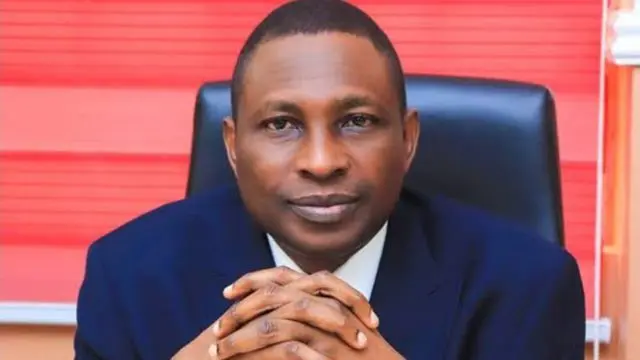The Executive Chairman of the Economic and Financial Crimes Commission (EFCC), Ola Olukoyede, has expressed deep concern over the persistent lack of transparency in Nigeria’s financial reporting system, especially within the oil and gas sector.
Speaking at the National Conference on Public Accounts and Fiscal Governance in Abuja, organised by the Public Accounts Committees of the Senate and House of Representatives, Olukoyede warned that speculative earnings, unverified transactions, and weak oversight continue to fuel inefficiency and corruption in public finance.
Represented by the EFCC’s Director of Public Affairs, Wilson Uwujaren, the anti-graft chief said: “Opaque financial reporting, particularly in the oil and gas sector where earnings remain speculative rather than factual, is one of the most disturbing vulnerabilities in our system. These weaknesses feed corruption and erode public trust.”
He listed several fiscal loopholes, including non-compliance with financial regulations, spending beyond approved limits, diversion of public funds, and budget padding for non-essential projects. He also raised alarm over the digital manipulation of government platforms such as the Government Integrated Financial Management Information System (GIFMIS) and the Integrated Payroll and Personnel Information System (IPPIS), which he said have become vehicles for payroll fraud in some ministries, departments, and agencies (MDAs).
“Despite years of reforms, the gap between policy intent and public impact remains wide. We must move from paper reforms to institutional enforcement,” Olukoyede stated.
Beyond prosecution, the EFCC chair noted that the Commission is now focused on prevention. He said the agency had taken significant steps in the past 18 months to tighten internal controls across the public sector. One key initiative, he revealed, is the establishment of a Fraud Risk Assessment and Control Department tasked with identifying and closing fiscal loopholes in MDAs.
Olukoyede also highlighted the EFCC’s intensified collaboration with domestic and international partners to track and curb illicit financial flows.
On asset recovery, he disclosed that trillions of naira had been returned to the national treasury, including proceeds from what he described as “the largest real estate asset recovery in Nigeria’s history” — the seizure of 750 duplexes in Abuja. Funds recovered, he said, are being channeled into key national initiatives such as the Nigerian Education Loan Fund (NELFund) and the Consumer Credit Scheme (CREDICORP), with plans underway to convert seized properties into affordable housing for low-income citizens.
Despite these strides, Olukoyede stressed that more work remains. He called for the institutionalisation of real-time digital tracking of budgets and projects, public access to expenditure data, and a strengthened whistleblowing framework. He also proposed integrity testing for public officers and greater citizen engagement in procurement and governance processes.
He urged the National Assembly to play a more active role in promoting accountability, revealing that the EFCC has yet to receive any oversight report from the Public Accounts Committee for investigation.
“Parliament cannot demand accountability if it does not practice it. Fiscal integrity must be the standard across all arms of government. Legislators must embrace transparent appropriation and resist actions that erode public trust,” he stated.
Olukoyede further called for a national culture of accountability, saying: “Let’s institutionalise transparency and make accountability a patriotic duty by enforcing the rules and regulations in our statutes. Together, we can build a Nigeria where fiscal governance delivers real value for real people.”















